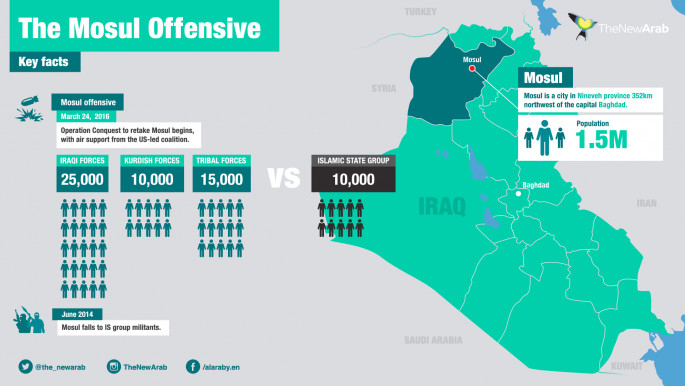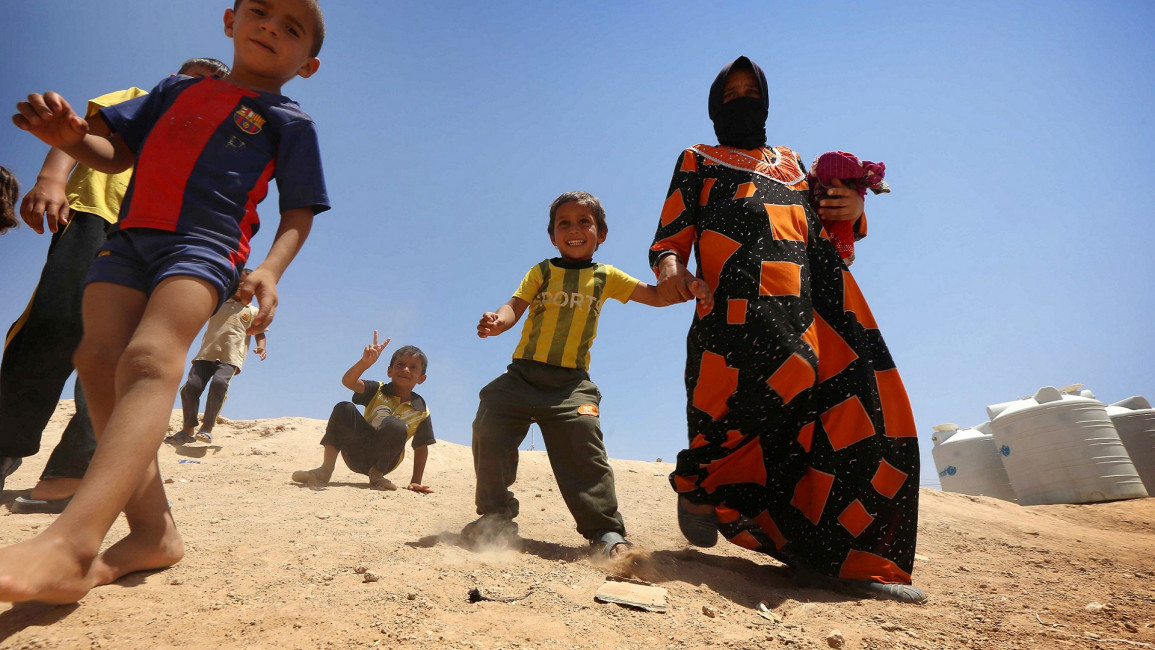UN: Battle of Mosul will cause mass civilian casualties
As Iraq gears up for an all-out assault on the last remaining major Islamic State stronghold in the country's second-largest city of Mosul, the UN humanitarian affairs agency OCHA has warned the fighting could cause mass civilian casualties and cause hundreds of thousands to be displaced.
The expected exodus and humanitarian disaster could require over $2 billion in aid and crisis-management funds, the agency said in the summary of its Iraq humanitarian response plan on Monday.
"The impact of the Mosul military campaign on civilians will be devastating. Mass casualties among civilians are likely and families trying to flee areas controlled by ISIL (IS) are expected to be at extreme risk," OCHA said, appealing for funds to begin preparations for the expected emergency.
Between 1.2 million and 1.5 million people are estimated to live in the city, currently a major stronghold of the radical jihadist group. All or the majority of them will flee once the operation begins, OCHA predicts.
"In a worst case, all or the majority of these people will require life-saving assistance and protection," the agency warned.
Difficulties ahead
According to OCHA, humanitarian intervention in Mosul faces several difficulties, including operating close to the dangerous Syrian border.
 |
The agency said 300,000 people will be displaced for three months in the "best case scenario," requiring an aid budget of $143 million.
In the worst case scenario, 1 million would be displaced for a year, requiring a $1.8 billion budget.
The United Nations asked for $861 million in January this year for Iraq, according to Reuters, the minimum needed to keep people alive, knowing that it was unlikely to get the $4.5 billion needed to offer 10 million Iraqis international standards of care, the UN document said.
Less than 40 percent of the funds required were received, causing dozens of aid programmes to be halted or slowed down, including much-needed aid for tens of thousands of people who have fled from now liberated Fallujah.
Fallujah, which lies 50 kilometres (30 miles) west of Baghdad, was the first city to fall out of government control in 2014, months before IS swept across Iraq and declared its "caliphate".
All efforts have since refocused on Mosul, about 360 kilometres (225 miles) northwest of Baghdad, which fell to IS militants during the summer 2014 onslaught that captured large swaths of northern and western Iraq.
The long-awaited operation is expected to be the most complicated despite backing from a US-led coalition that is providing both aerial assistance and intelligence to government forces.



